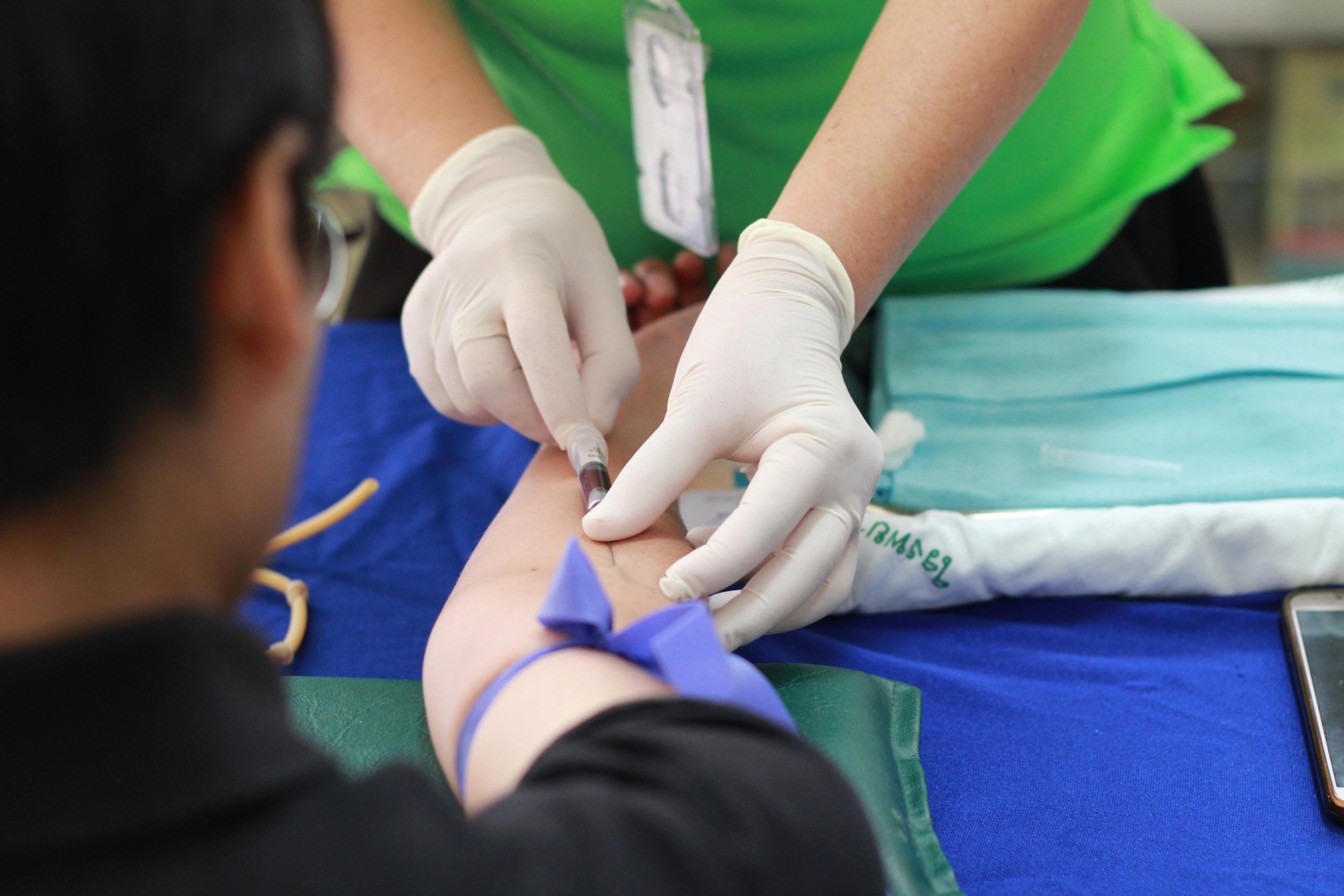Lyme Disease Blood Test
Venous blood sample
3 Biomarkers - (Borelia Abs) IgG, IgM
A blood test that is primarily used to help diagnose Lyme disease, a bacterial infection caused by the Borrelia species, usually transmitted through tick bites. Here's an explanation of each biomarker and the benefits of testing these specific antibodies:
Results expected within 4 working days.
Free delivery
Venous blood sample
3 Biomarkers - (Borelia Abs) IgG, IgM
A blood test that is primarily used to help diagnose Lyme disease, a bacterial infection caused by the Borrelia species, usually transmitted through tick bites. Here's an explanation of each biomarker and the benefits of testing these specific antibodies:
Results expected within 4 working days.
Free delivery
Venous blood sample
3 Biomarkers - (Borelia Abs) IgG, IgM
A blood test that is primarily used to help diagnose Lyme disease, a bacterial infection caused by the Borrelia species, usually transmitted through tick bites. Here's an explanation of each biomarker and the benefits of testing these specific antibodies:
Results expected within 4 working days.
Free delivery
Special instructions
Prepare for Lyme Disease Blood Test by following these instructions. You may need to repeat this test 6 weeks following the first test. Write details of any recent foreign travel on your form.
FAQ’s
-
1. Borrelia IgG Antibodies
IgG antibodies are a type of immune response that develop in the body after a prolonged exposure to an infection, and they typically appear several weeks to months after the initial infection.
Benefits:
Detecting Past Infection: The presence of IgG antibodies suggests that an individual has been exposed to the Borrelia bacteria at some point in the past, even if symptoms are not currently present. This can help doctors confirm a past infection or assess the possibility of chronic Lyme disease.
Chronic Lyme Disease Diagnosis: In cases of chronic Lyme disease (where symptoms persist after initial treatment), IgG antibodies may remain elevated for years, signaling a past or persistent infection that may require further medical attention or long-term treatment.
Long-term Immunity Insight: The test can provide insight into whether the immune system has developed a lasting response to the infection. Elevated IgG levels could indicate the body’s prolonged battle with the bacteria.
2. Borrelia IgM Antibodies
IgM antibodies are produced early in an infection and are typically the first line of defense when the body encounters a new pathogen. Their presence usually indicates a recent or active infection.
Benefits:
Early Detection: IgM antibodies appear within the first few weeks of infection with Borrelia, so their detection is essential for diagnosing acute Lyme disease during the early stages, when treatment is most effective. IgM testing can confirm if the infection is recent, as these antibodies are produced shortly after initial exposure.
Guiding Early Treatment: The presence of IgM antibodies along with clinical symptoms like a bull's-eye rash, fever, or fatigue can help physicians initiate early antibiotic treatment, reducing the risk of complications associated with untreated Lyme disease.
Differentiating Between Recent and Past Infections: Measuring IgM antibodies can help distinguish between recent and past infections, enabling better-targeted treatment plans.
3. Combined Use of IgG and IgM
The combined testing of both IgG and IgM antibodies offers a comprehensive understanding of the infection timeline.
Benefits:
Assessing Infection Stage: The pattern of IgG and IgM antibodies provides crucial insights into the stage of the infection. IgM antibodies point to a recent or active infection, while IgG antibodies suggest a past or chronic infection. The combination of both can help doctors determine the appropriate course of action.
Confirming Lyme Disease Diagnosis: The test can be instrumental in confirming the diagnosis of Lyme disease, particularly in the presence of symptoms that align with the disease. When a person has an elevated level of both IgM and IgG antibodies, it indicates an active or recent infection and helps doctors confirm the disease.
Monitoring Disease Progression or Treatment Response: In individuals undergoing treatment for Lyme disease, antibody testing can be used to monitor changes in the immune response, helping doctors assess whether the infection is resolving or if further treatment is necessary.
Overall Benefits of This Blood Test
Early Detection of Lyme Disease: By detecting IgM antibodies, the test helps identify acute Lyme disease early, allowing for prompt treatment to prevent complications.
Confirmation of Chronic Lyme Disease: Elevated IgG antibodies can indicate chronic Lyme disease or a past infection, which may be useful in understanding long-term symptoms that persist even after initial treatment.
Targeted Treatment Plans: Understanding the presence and levels of both IgM and IgG antibodies allows healthcare providers to better target treatment based on whether the infection is recent or ongoing.
Differentiating Lyme Disease from Other Conditions: The test can also help differentiate Lyme disease from other conditions with similar symptoms, such as viral infections or autoimmune disorders.
Monitoring Response to Treatment: After treatment, the levels of antibodies can be monitored to assess whether the infection is cleared, or if further treatment is needed.
Conclusion
The Borrelia Abs IgG and IgM blood test is an essential tool for diagnosing and managing Lyme disease. By measuring these antibodies, the test helps identify both recent and past infections, ensuring early diagnosis and treatment, which is critical for preventing long-term complications. The results provide valuable information for healthcare providers to tailor treatment plans, monitor the progress of the infection, and assess the response to therapy.
N.B. Venous blood taking kit only.


